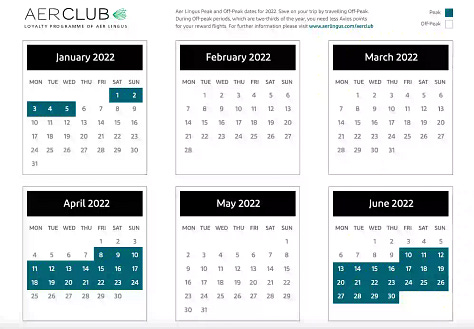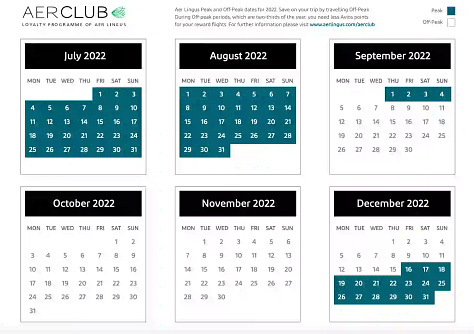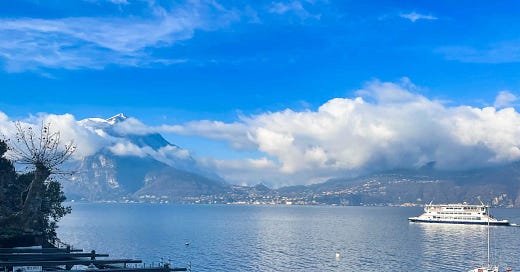TDG #007: When shoulder season travel goes wrong
Hello friends,
I'm Skylar, and this is The Daily (weekly?) Grog newsletter.
It's damn near the end of January, and my ever-slowing synapses find it hard to believe that the first month of this year is about done.
It's even harder to believe that Steph and I are more than halfway through our time in Albania. There is so much to say about this country; it's genuinely one of the most fascinating places I've ever visited. We'll get to that eventually.
In this week's newsletter:
A harrowing story of a shoulder-season fail
Two benefits of shoulder-season travel (one practical, one not-so-practical)
A few lessons I've learned
Some Gear/Tech Updates
For the last seven months or so, we have pretty much been living in one extended shoulder season; June - August in South America, September - January all around Europe.
Let's define "shoulder seasons" as those weird in-between times when most people aren't traveling there, and the weather isn't bad but isn't great either. The exact dates can depend on where exactly you are in the world.
It's been a pretty big trend for travelers, influencers, writers, and....content creators (ugh) to extol the virtues of shoulder season travel: the fact that it's more affordable and will have fewer crowds being the two most touted benefits. If you follow me on social media, you'll probably know that I am a culprit of this (anything for those sweet, sweet likes, baby).
And those are all true.
But it's worth noting that some realities of traveling during off-peak times are unavoidable and unexpected. So, as an avid shoulder season traveler extraordinaire, I offer you a personal example of when it just didn't quite work out.
When shoulder season travel goes wrong
In the Fall of 2021, we took our annual Thanksgiving trip abroad, this time around to Italy. The journey started in Venice, then a road trip through Piedmont and Lake Como.
The first two legs of the trip were spectacular - Venice was magical and devoid of tourists, and Piedmont was filled with white truffles.
The issues came in Lake Como. It wasn't a particularly long drive from Monforte d'Alba to Varenna, but long enough to weigh on a jet-lagged, pasta and wine filled sack of skin masquerading as a human. So by the time we got to Varenna, around 5 pm, I was tired.
When we checked into the room, our host, Giorgio, was extremely friendly and gracious by offering to call restaurants to see if they were open and make reservations for us. He even offered to bring us leftover spaghetti his wife had made. Not wanting to trouble or inconvenience him, we politely declined.
After an unfortunately timed lengthy nap, my body decided it was time to eat. That or I could feel Steph's hungry eyes burning a hole in my head. One of the two.
At this point, it was around 6:30 pm. Surely restaurants would be open and eager to indulge our stomachs. Even the great Google overlord said that there were, in fact, open restaurants in the area.
Wrong.
We walked to some, drove to others, and called a few - nothing was open, not a single restaurant, cafe, or grocery store.
Eventually, we gave up the hunt, and waddled back to our room, defeated. And in our defeat, we were even too ashamed to message Giorgio and beg for leftovers.
So there we were, sitting on our couch looking out onto Lake Como with a few smushed granola bars and a bottle of sparkling wine Giorgio had left us as a welcome gift.
But shoulder season travel has benefits
Ok, but there are undeniable benefits (many, in fact) to traveling during the shoulder seasons. But I'll give you a practical and not-so-practical example.
Practical: It's cheaper
This is true for everything from flights, food, lodging, and experiences. Across the board, companies and people lower prices because, typically, demand during the shoulder seasons is significantly lower than during the summer.
Let's look at a tangible example, like booking flights.
Trigger warning, this will involve a discussion of airline points.
If you're trying to get to Europe, there is no shortage of airline point combinations to get you there. But my favorite way to redeem points for the past few years has been using Avios and Aer Lingus.
Take a look at these three pictures:



The first two charts show how Aer Lingus has defined "peak" and "off-peak" seasons for 2022. The last chart shows how much it costs (in Avios) to fly based on the route and season.
So if you're on the United States East Coast, you could get to Dublin for 13,000 Avios (plus taxes and fees) during the shoulder season. That's pretty good! I've used this to go to Dublin, and I've also used this to get myself to Europe, then tempt fate with a $10 Ryanair flight to somewhere else.
Now I realize this isn't exactly the most prestigious or luxurious way to use points, nor do I claim to be a points expert. But it is a pretty damn cheap way to get to Europe and illustrates how cost-effective it can be to travel during the shoulder seasons.
Not as practical: People are more open
Conventional wisdom would say that people are generally more closed off when the weather is worse. But anecdotally, while traveling, I haven't found this true.
Which makes sense. During peak seasons, hordes of tourists flood the city, making life nearly unbearable for the average local living and working there. So it isn't surprising they aren't the most excited to hear or see another tourist. Nor do they have time to deal with your nonsense.
Conversely, folks show more curiosity about my presence when I'm somewhere random during an off-season. The amount of times I've gotten something to the effect of "so what are you doing here at this time of year?" is truly astounding. And it's generally not in an annoyed, "why are you invading my space" kind of way, just more curiosity.
At the very least, it's a conversation starter that can lead you down many different paths, including some truly unique experiences.
During that same trip to Italy, we went to a bar to grab some drinks in Venice. It was a small, unsuspecting cocktail bar in the Cannaregio neighborhood. We were the only people there.
Naturally, the bartender (and owner) started talking to us. One drink became two drinks, and a couple more people started to trickle in. The bartender seemed to know each person. By midnight the place was packed with local Venetians having a night out, and we were the only tourists in the bar!
The details of this night admittedly start to get a little fuzzy around midnight but suffice it to say it was an entertaining night of drinking, meeting new people, and talking to strangers.
You can't quantify it like airline points or cost, but this is the most essential benefit of shoulder season travel - having intimate conversations with strangers.
Some Lessons
If I had to boil it down into a few rules, they would be something along the lines of:
Life does slow down or even shut down in some areas. Try to find beauty in those moments.
Don't readily trust information online (especially business hours); ask someone who lives there.
Any vision you had of the place will be wrong. Not better, not worse - different.
Talk to strangers.
Bring a rain jacket.
If someone offers you leftover pasta, take it.
Gear/Tech Updates
Since GoogleFi decided to give us the boot and suspend international data usage for anyone who spends too much consecutive time outside the U.S. (a decision I still lament), we've been using a service called Airalo.
Basically, it's an eSIM that uses the new phone tech these days to provide you a data-only SIM card. For the most part, it has been effortless to use - I wrote up a review of my experience with Airalo if you're interested.
But once we got to Albania (which I think was coincidental), we started noticing some strange behavior. Two things stood out the most: adding a new contact on services like WhatsApp started defaulting to a Hong Kong country code, and we could no longer access TikTok on our phones. After some sleuthing, I found out that some eSIM providers route your data through servers in places like Hong Kong (which explains the Chinese-owned TikTok issues), Israel, and others.
I bring this up for two reasons:
They market themselves as providing local or regional eSIMs.
Potential latency issues. Anecdotally I haven't seen any, but your mileage may vary.
I've reached out to Airalo for more info, so we'll see what they say. In general, I'd still recommend the service. There really isn't a more convenient option when traveling for an extended period of time or if your carrier's international data plan is cost-prohibitive. But it's something to be aware of.
Alright, alright, enough nerding out.
Phew, that was...a lot. That was roughly 1,500 words on shoulder season travel you never knew you wanted. You're welcome.
See ya next week,
Skylar





